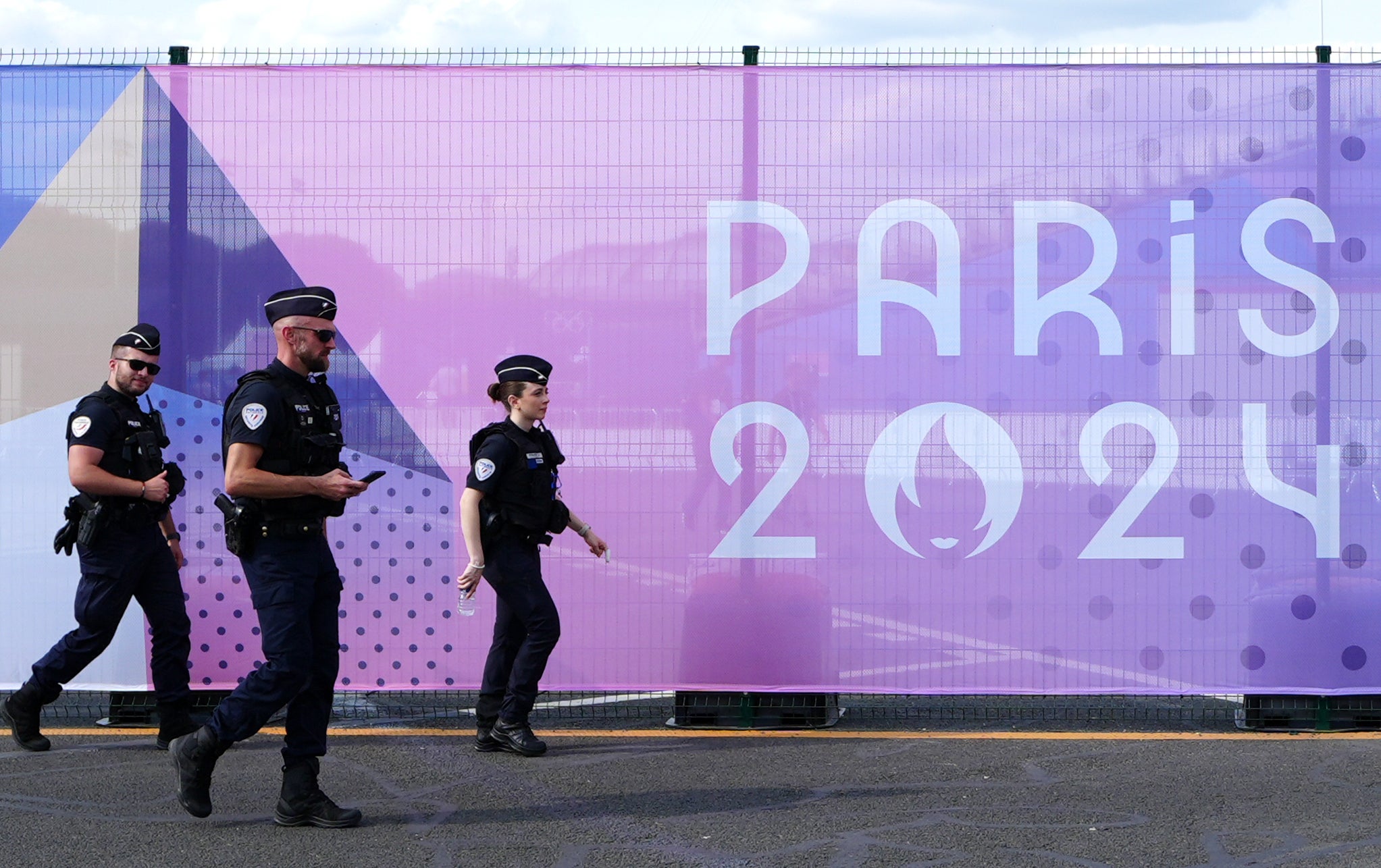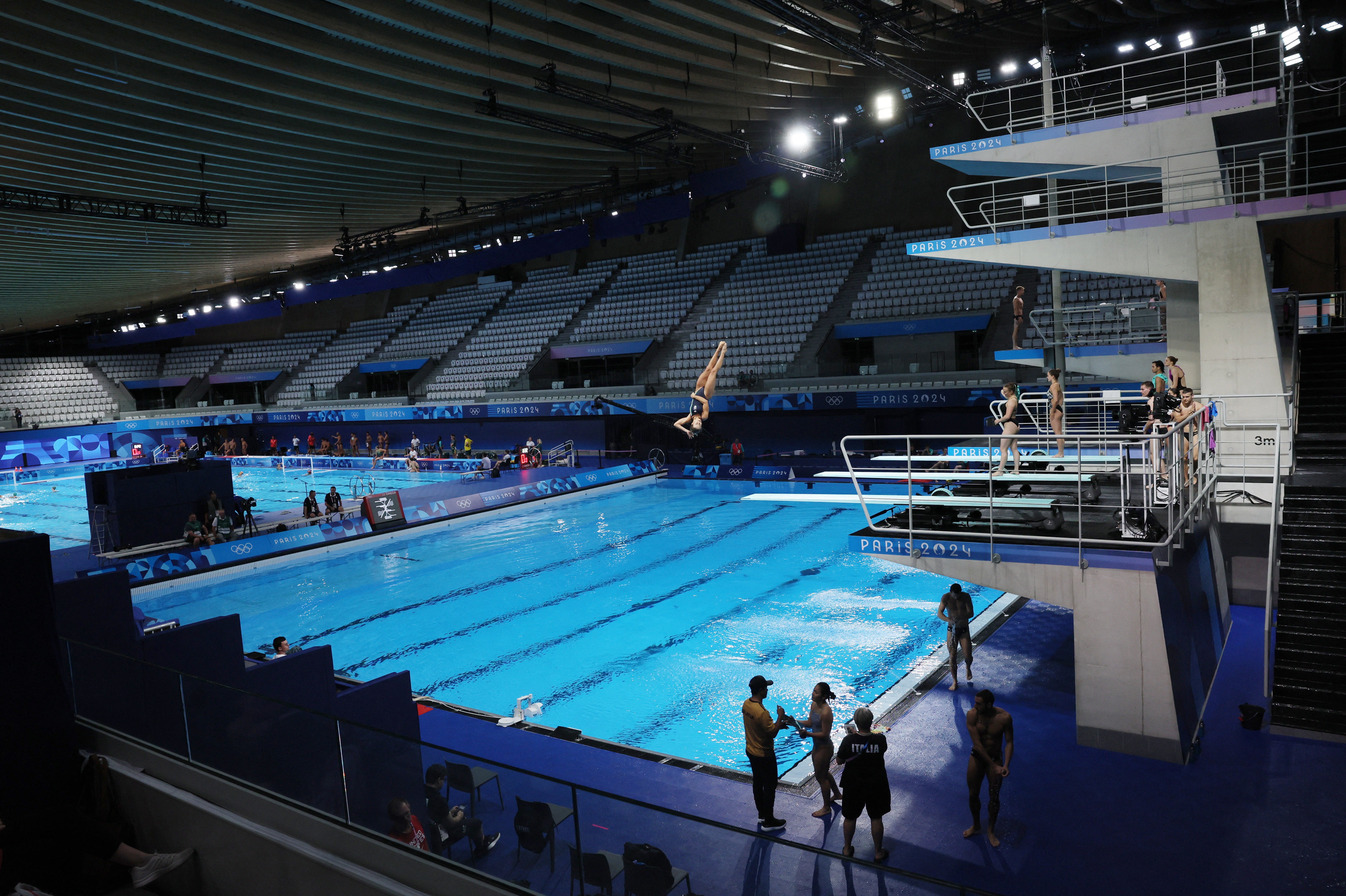Heat, rats and sewage in the Seine: Paris battles a host of problems before Olympic Games begin
Concern and controversy has weighed heavily on the build-up to the Paris Olympics as city officials rush to present the capital in its best light and organisers work under the shadow of a corruption investigation

Your support helps us to tell the story
From reproductive rights to climate change to Big Tech, The Independent is on the ground when the story is developing. Whether it's investigating the financials of Elon Musk's pro-Trump PAC or producing our latest documentary, 'The A Word', which shines a light on the American women fighting for reproductive rights, we know how important it is to parse out the facts from the messaging.
At such a critical moment in US history, we need reporters on the ground. Your donation allows us to keep sending journalists to speak to both sides of the story.
The Independent is trusted by Americans across the entire political spectrum. And unlike many other quality news outlets, we choose not to lock Americans out of our reporting and analysis with paywalls. We believe quality journalism should be available to everyone, paid for by those who can afford it.
Your support makes all the difference.It is forecast to rain in Paris on Friday, and for organisers of the Olympic Games, that could be a problem. Not because the rain might put out the Olympic flame during the opening ceremony (this actually happened during a storm in Montreal in 1976, and the flame had to be reignited with a cigarette lighter), but because stormwater washes wastewater into the River Seine.
Levels of E coli bacteria in the Seine are being monitored by stressed organisers and frazzled scientists on a constant basis, and over the past few weeks those readings have been on a hygiene knife-edge. The river is meant to host open water swimming and triathlon events next week, but heavy downpours could tip readings back towards unsafe territory, as they have been for most of the year. It is no wonder the Paris mayor, Anne Hidalgo, put off last week’s swimming stunt for as long as she possibly could.
There is confidence among organisers that the dry mid-July weather has done enough to lower pollution levels and avoid the drastic option of cancelling the swimming leg and turning the triathlon into a duathlon, but it is just one of a number of issues that have weighed on them in the build-up to these Games.
Chief among them is security. These Olympics come less than a decade after the deadliest terrorist incident in French history, the 2015 attacks on the Bataclan and other sites around Paris, which left deep scars and a city on edge. This reporter was in a fan park by the Eiffel Tower at Euro 2016 when a popping noise sparked a terrifying stampede to escape what was presumed to be the sound of a gun. It turned out to be firecrackers, but people assumed the worst.
The Games arrive at a time of tension in France following the snap election earlier this month, which saw violence break out on the streets after a shock win for the country’s left-wing coalition blocked the far-right from taking power. Protesters could be seen launching flares, setting e-bikes on fire and clashing with police.
“Security is at the heart of everything we do,” Paris 2024 CEO Etienne Thobois told The Independent earlier this year. “There is a huge plan being put in place. Tens of thousands of people are going to be implemented and not one stone has been left unturned. It is not about being confident, it is about being thorough, and to limit the risks that will always remain.”

There are also concerns around temperatures which are expected to soar beyond 30C next week, making all manner of events a serious health risk. At the Olympic Village, accommodation was built without air conditioning in order to boost the Games’ environmental credentials, but organisers U-turned after a backlash from national associations, and a supply of 2,500 temporary units will now serve the 7,000 rooms on site.
That response hasn’t satisfied everyone. Sleep is increasingly considered critical to elite performance and some of the wealthier nations, including Britain, Australia and the USA, are bringing, buying or renting their own air-conditioning units. “We appreciate the concept of not having air conditioning due to the carbon footprint,” Australian Olympic chief Matt Carroll said. “But it is a high-performance Games. We’re not going for a picnic.”
Hosting the Olympics is always a show of soft power to the world, and so Paris is attempting to present itself in a certain light while hiding some raw realities. One of those is rats: the city has undergone a mass purge using mechanical traps and chemicals, and shutting off sewer exit points, led by expert exterminators called the Smash Team.
In a dark parallel, city officials have been accused of social cleansing after police broke up migrant camps earlier this month and homeless people were systematically removed from the capital’s streets. Since April 2023, almost 13,000 people on the margins of Paris – largely immigrants, people sleeping rough and sex workers – have been removed, according to a report by a group of human rights organisations and charities called Le Revers de la Medaille (the other side of the medal).
While government and city officials have been tasked with presenting the best of Paris, the organising committee’s primary task of delivering the Games has been relatively straightforward, given how much of the sporting infrastructure was already in place and how little had to be built from scratch. The only major new venue is the Aquatics Centre, though that comes with the bizarre catch that it won’t host a single swimming race, despite promises that it would in the city’s original bid.
Fina, swimming’s global governing body, demands a venue capacity of at least 15,000 seats for major events like the Olympic Games, but Paris’s shiny new €175m (£147m) Aquatics Centre will host only artistic swimming, diving and water polo in front of 5,000 fans, while the far bigger La Defense Arena will now put on the swimming. It has been reported that the reduction in capacity was decided as the venue’s budget spiralled from its original €70m, though a spokesman for the Paris 2024 organising committee denied this to The Independent, insisting the decision was purely logistical.

It is worth pointing out that a corruption probe still hangs over the organising committee, after French police raided the house of CEO Thobois and seized documents as part of synchronised raids on the Olympics’ headquarters and the offices of companies awarded contracts to help deliver the Games. The investigation into “illegal conflict of interest, misuse of public funds and favouritism” remains ongoing, and no charges have been brought against anyone involved. Thobois told The Independent he was shocked by the raids but added that “it’s part of the job”.
All of which means organisers and city officials cannot wait for the Games to get into full swing, and for the stars to take the stage.
This will be a year when mental health is in the spotlight, as Simone Biles returns to perform under intense scrutiny following her struggles in Tokyo. Adam Peaty and Caeleb Dressel, two of the pool’s alpha swimmers, will compete after having taken time away to look after their mental wellbeing. Their stories can be inspirational both in glory and in defeat.
There are many potential headline acts, like the American sprinter Noah Lyles, the Canadian teenage swimming sensation Summer McIntosh and French judo king Teddy Riner. And there are always stories that emerge from thin air – think of the high jumpers’ shared gold in Tokyo, moments that are seen and shared around the world in an instant.
A century after its second Games in 1924, Paris will become the second city to host the summer Olympics for a third time. It will be spectacular, with an opening ceremony on the river and absorbing sport played out against backdrops of the Eiffel Tower and the Palace of Versailles. Seven years after it won the bid, amid a host of problems, Paris is almost ready to put on the world’s greatest show. So long as it doesn’t rain.



Join our commenting forum
Join thought-provoking conversations, follow other Independent readers and see their replies
Comments